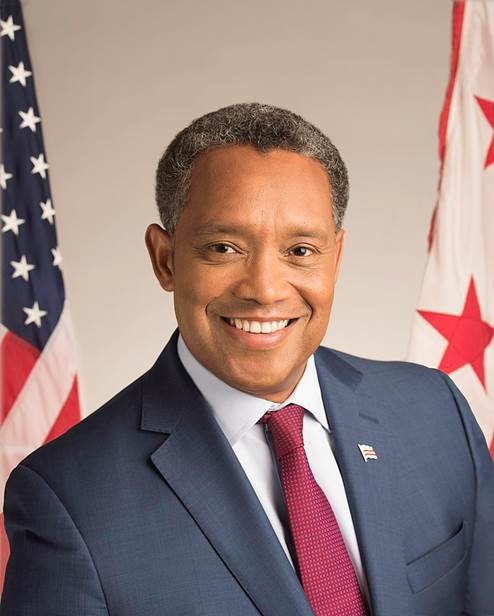In a recent webinar, conducted by the Attorney General Alliance and Thomson Reuters, our panel of experts examined cannabis law and the federal drug laws
Recreational Cannabis is legal in almost a dozen states and medical marijuana in 33 states with more on the way. Public opinion polls reflect a growing acceptance of legalization with two-thirds of Americans supporting marijuana legalization, according to the Pew Research Center. Despite all of this, marijuana remains illegal under U.S. federal law as a Schedule I drug.
And Congress is taking its time to catch up with the trends. Cannabis legislation remains in a sort of “legal limbo,” as characterized by District of Columbia Attorney General Karl A. Racine. Congress has been slow to act in this regard according to AG Racine and has “failed to act on regulatory issues.”
A group of panelists — including AG Racine; John Hudak, deputy director of the Center for Effective Public Management and a senior fellow in Governance Studies; and Prof. Rober Mikos of Vanderbilt University, one of the nation’s leading experts on federalism and drug law — addressed these legal concerns on a recent webinar, Cannabis Law and Policy, conducted by the Attorney General Alliance and Thomson Reuters.
The consensus among all panelists was clear: cannabis legislation is a federalism question for our time.

During the webinar the group explored best practices from states that have set up a regulatory system, including the importance of interagency coordination and communication within a state, a study of the interpretation of language in defining cannabis statutes, and finally, the glaring social inequities which result when our nation operates with a patchwork of laws.
The Powers & Limits of Federalism
Hudak began the conversation by discussing the importance of creating a regulatory authority. Where do you locate your regulatory authority? Is it centralized within the state or distributed among agencies? There is an appeal to distributing regulatory authority across agencies, instead of at the state-level, simply because of the expertise needed in the cannabis industry, he explained. “Cannabis touches on so many areas of policy: the environment, taxation, energy consumption, agriculture, and more,” Hudak said, cautioning that a decentralized approach has its pitfalls as well. “The reality is that if we divide up authority amongst agencies, challenges exist as to how well those agencies work together.”
In addition to location, you also must understand what capacity and expertise your state already possesses. Chances are, if your state hasn’t legalized marijuana, the only agencies dealing with cannabis in an appreciable way is law enforcement, Hudak added.

That’s why properly funding regulatory agencies at the outset is critically important, he said, adding that while legal cannabis will produce a stream of tax revenue, oftentimes people expect a much larger stream of revenue than actually materializes.
Rulemaking Requires Expertise & Experience
Cannabis policy requires a significant amount of rulemaking. Whether cannabis legislation happens via ballot initiative or a legislative change, Hudak explained that the agency or agencies assigned the actual cannabis regulation and rulemaking need to have experience dealing with the legal intricacies of complex rulemaking.
Equally as important is understanding that cannabis policy tends to be shared between state and local government and making it clear where shared authority ultimately lies. Communication is between state and local agencies is key. For example, the county or municipality first needs to ensure that its actions aren’t in conflict with the state, and then that the regulations are coherent. “Oftentimes, state and local governments are operating essentially blind of each other and the outcome is a patchwork that is difficult for business owners, investors, customers, or citizens to understand,” Hudak noted.
Why Language Matters in Cannabis Legislation
There are countless statutes and legal doctrines that restrict legal rights or remedies to “lawful” activity. Perhaps this is where the federalism problem is most acute.
“In most situations, determining what lawful means it pretty straightforward,” Prof. Mikos said. “But when a state legalizes cannabis, ‘lawful’ becomes tricky. Does lawful mean just under state law? Or does lawful mean under state and federal law?”

Courts have confronted this question, often coming to different outcomes. In a 2015 Colorado case, Coats v. Dish Network, the court found that a state law that shields employees from being fired for engaging in “lawful activity” required employees to comply with both state and federal law. Yet in another case from Arizona, the court found a similar state law that required parolees to comply with all statutes referred to state law only.
“The court reasoned that it couldn’t imagine voters who passed the medical marijuana initiative would have wanted to deny prisoners the privilege of going on parole, just because they were participating in Arizona’s marijuana program,” Prof. Mikos said, adding that the big lesson is that state marijuana reforms can have effects on a variety of statutes that facially don’t seem to have anything to do with marijuana.
If states want to have confidence in how reforms will impact statutes and how they will be applied, however, it is best to address that clearly at the outset. “For example, states have adopted amendments to statutes which specify whether lawful means lawful under just state law, or federal as well,” Prof. Mikos explained.
You can listen to the recent webinar, Cannabis Law and Policy, conducted by the Attorney General Alliance and Thomson Reuters, here.







